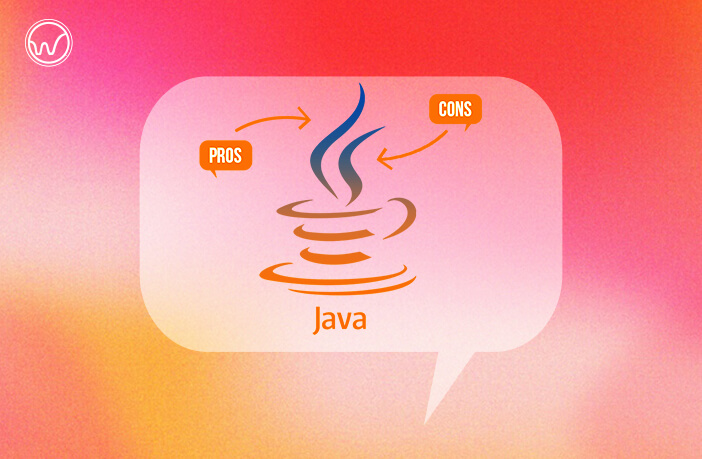Pros and Cons of Java

In our computer and laptop classes, we learned about the most common programming language used by Java. Programming in this language has been the most popular for over two decades, and it is also being used for network programming. Its everlasting performance makes Java specialists believe in this programming language. Before web applications, it intended Java for handheld devices and set-top boxes. As a result, Java is the most popular of a variety of programming languages. Today, Java is the dominant programming language.
What is Java?
Java is one of the most robust programming languages that has remained at the top of coders’ minds for over two decades. Object-oriented and high-level, it has amazing debugging features as well. Java code can be run either by using an online compiler or by using an IDE, such as Java Virtual Machine (JVM). To run java programs on a computer, a Java Virtual Machine (JVM) must be downloaded and installed. Often when Java programs are executed, the JRE layer is used.
Java has several advantages and disadvantages, just as every coin has two sides.
Pros of Java
There are some primary advantages of Java; let’s see them.
1. Simple
Unlike other programming languages, Java is straightforward to use, easy to write, compile, and debug, as well as easy to learn. Besides automatic memory allocation and garbage collection, Java is also less complicated compared to C++.
2. Object-Oriented
Object-oriented programming is built into Java right out of the box. This allows you to create reusable code and standard programs.
3. Platform-Independent
A Java program will run on any machine, so it doesn’t require any special software to run, but it does require the Java Virtual Machine.
4. Distributed computing
The concept of distributed computing is related to the ability to run and execute tasks over a network of computers. Applications that run on distributed networks and contribute to data as well as application functionality can be developed using this technology.
5. Secure
The Java language lacks an explicit concept of pointers. Besides this, Java has a powerful security manager for defining class access rights.
6. Memory allocation
Java uses two types of memory management: heap and stack. Variables and arrays for programs are allocated memory from either the heap or stack space when we declare a variable. It facilitates the organization and storage of data.
7. Multithreaded
Programs are organized into threads. With Java, multiple threads can run simultaneously. Threads run independently in their own memory. You can therefore make better use of your processor.
Cons of Java
1. Performance
Java programs consume a lot of memory. Because of this, it runs slower than natively compiled languages like C or C++.
2. Look and Feel
The default appearance of Java applications written with the Swing toolkit differs from that of native applications.
3. Single-Paradigm Language
Static imports are supported as of Java 5.0. A more streamlined procedural paradigm is provided by this version of Java.
4. Memory Management
Java uses garbage collection to manage memory. The performance of application programs is affected whenever garbage collectors run or execute. The reason for stopping all the other threads is so that the garbage collector thread can do its work.

















